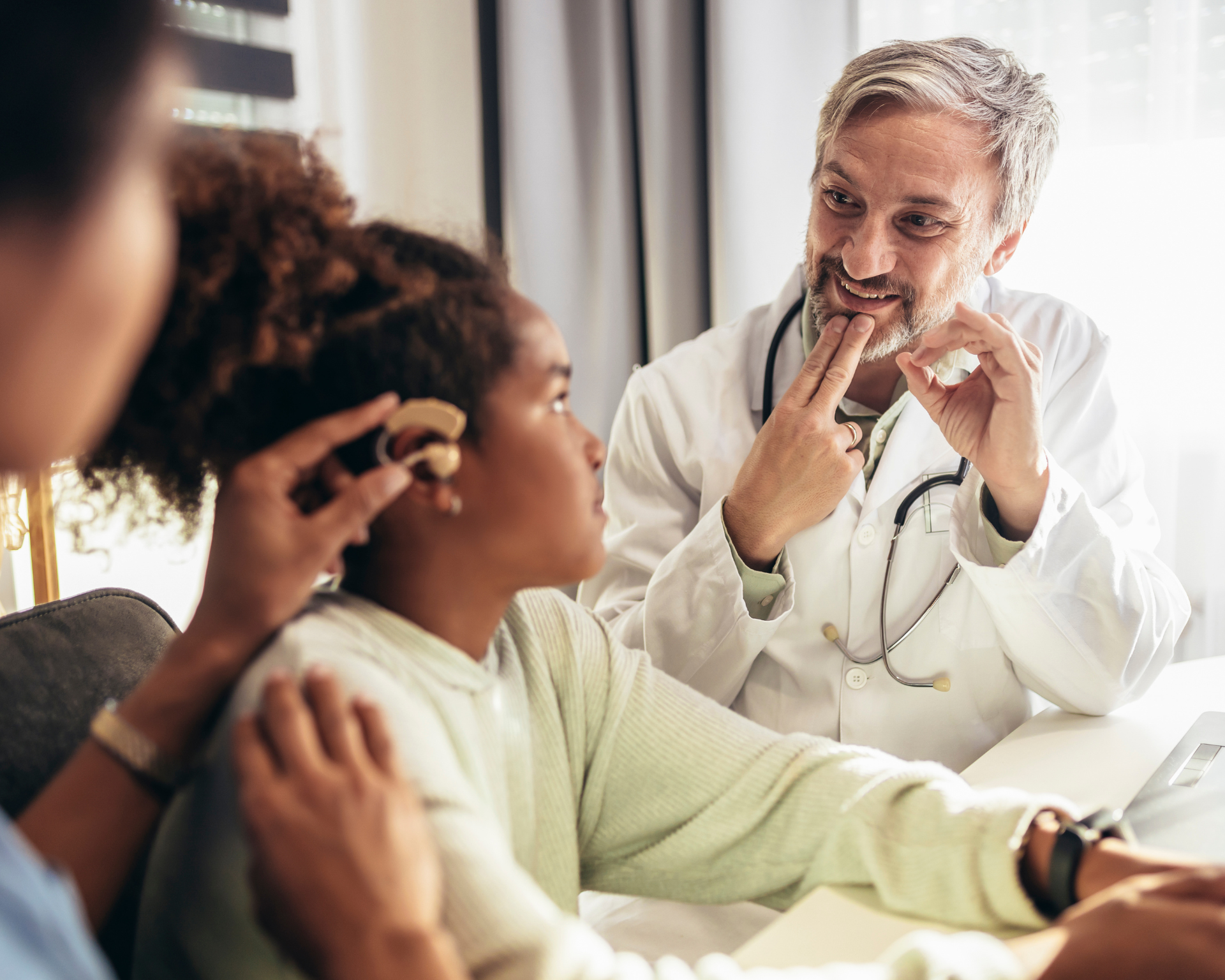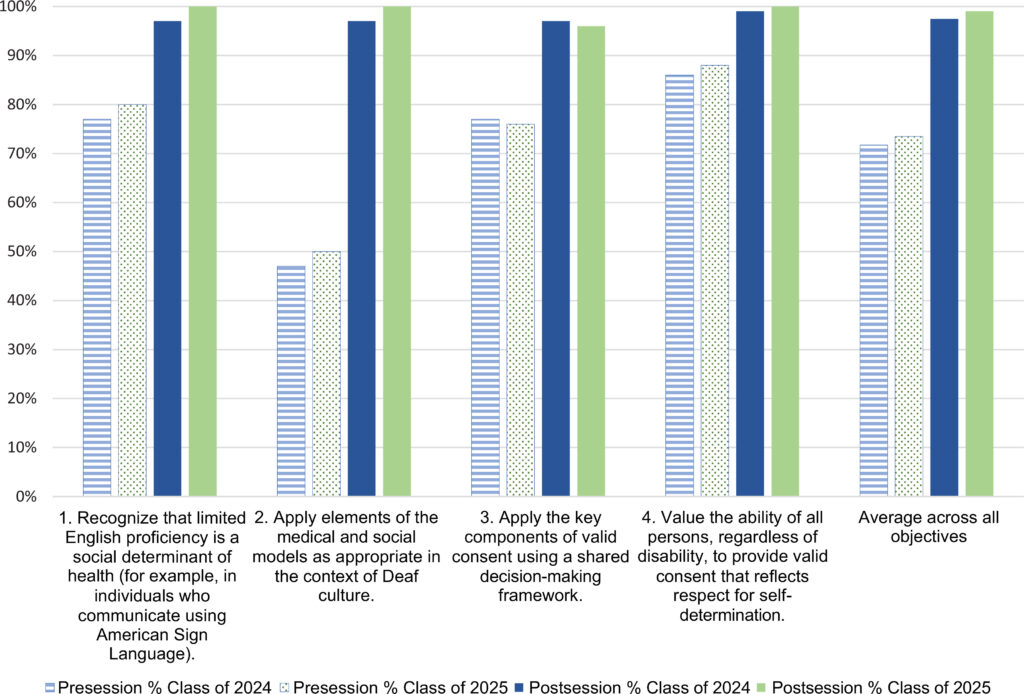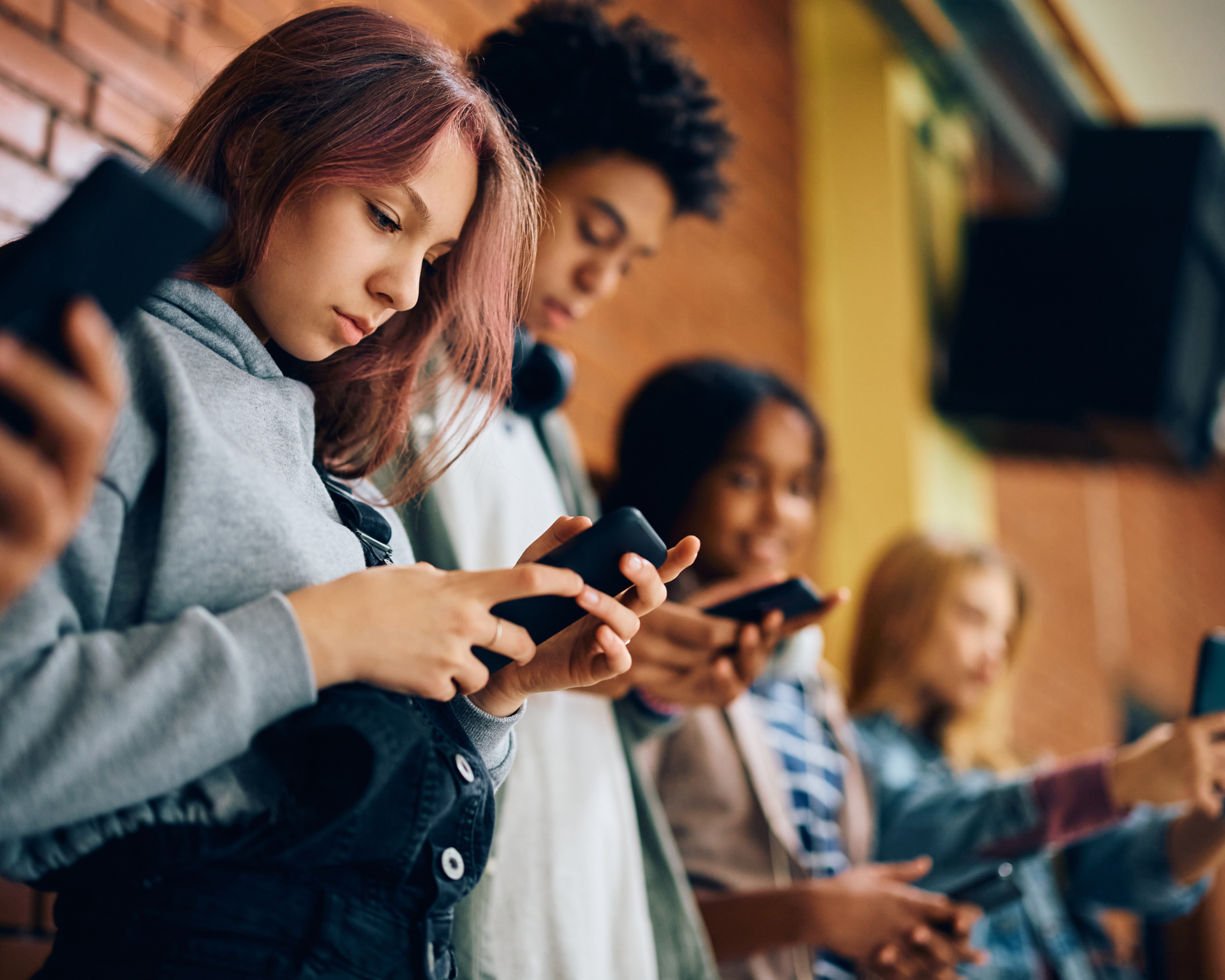Training to Improve Care Experiences of ASL Users
Training future providers to address the unique challenges of Deaf individuals fosters empathy and contributes to more inclusive care.

Read Time: 2 minutes
Published:
For many in the Deaf community, deafness represents a rich cultural identity rooted in shared experiences, values, and American Sign Language (ASL). ASL is more than a communication tool—it is central to Deaf culture, fostering connection and belonging.
Deaf individuals who use ASL often face health inequities due to limited access to culturally appropriate care and visits with providers untrained in effective communication. Viewing deafness solely as a medical condition overlooks these challenges.
To address these issues, Hannah Ship and colleagues evaluated an intervention to educate medical students on Deaf culture, ASL basics, and strategies for communicating with Deaf patients. By training providers to better understand and connect with the Deaf community, the curriculum aimed to improve health care experiences and outcomes.

Pre- and post-training surveys showed that students felt more confident working with ASL users after completing the program. The figure above highlights survey results on four key competencies, comparing responses from the 2024 and 2025 classes, before and after training. While all areas improved, the most significant progress was seen in students’ ability to not only diagnose and treat medical conditions but also to recognize and respond to the social factors affecting Deaf patients’ health.
Students especially valued direct interaction with an ASL user during the training, aligning with research that highlights the importance of lived experiences in disability education. Such interactions foster empathy and understanding, equipping future providers to address the unique challenges faced by Deaf individuals and contributing to more inclusive health systems.



